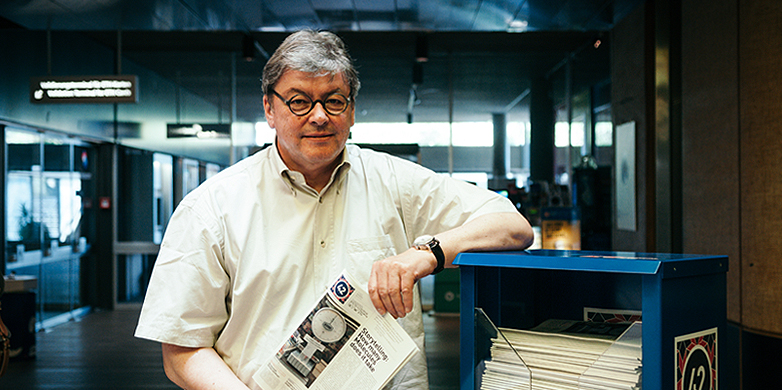The new "42" is an anthology from the Critical Thinking team, published in print and online with articles, commentary and suggestions that encourage campus members to question the basis of their work.
Anyone who is familiar with Douglas Adams' sci-fi classic "The Hitchhiker's Guide to the Galaxy" will know "42", the Deep Thought supercomputer's succinct yet cryptic answer to the question about the meaning of life. That the handy magazine from ETH's Critical Thinking team shares its name with this answer is no coincidence, since all its articles focus on how to ask a good question.
Reflecting on our actions
This is the issue at the very heart of the Critical Thinking initiative. The collection of articles, observations and caricatures in "42" aims to get ETH members to think critically about what often lies unquestioned at the root of their work. "If these texts make people think just once about their own way of thinking, we've achieved our aim," says Gerd Folkers, Chair of Science Studies and Head of the Critical Thinking initiative. A new edition of the magazine is planned approximately every six weeks, or 42 days. It will be published online and in print form in dedicated newspaper boxes on the Zentrum and Hönggerberg campuses.

A return to faith
In the opening edition, economist Matthias Binswanger shows how methodical optimisation paradoxically increases the proportion of faith in scientific coordinate systems – and how little science itself acknowledges this: "Increasingly complex statistical processes and methods also lead to an increasingly complex variety of results (...)," says Binswanger. "Through an 'appropriate' choice of data and timeframe, through an 'appropriate' manipulation of the data, through the choice of 'appropriate' statistical processes, and through the non-publication of results that contradict that individual's position, many postulated hypotheses and theories are confirmed or misrepresented in line with the researcher's interests."
Critical thinking required
In another text, physicist and philosopher Eduard Kaeser describes how the weighting of the non-factual is increasing amid the onslaught of digital information as, gradually, the central framework of truth and objectivity is alarmingly displaced.
Like any magazine, an edition of 42 has to include a few titbits – intelligent titbits, of course – in the form of aperçus, cartoons and images, preferably sourced from ETH's own labs. Readers are encouraged to submit their own contributions to upcoming editions.
